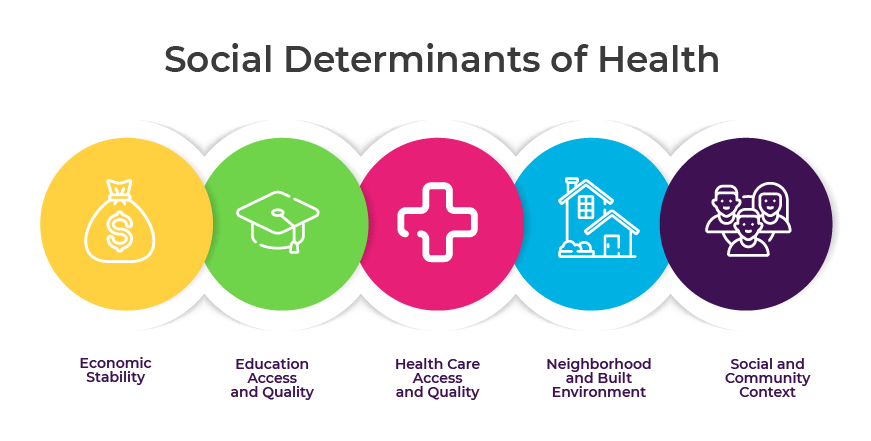
Brain Injury Effects: Long and Short Term and How to Cope
Brain injuries are one of the severe injuries a person can suffer. Depending on the severity, they can cause long-term or short-term effects that can be life-altering. If you or someone has suffered a brain injury, it is essential to understand what to expect and how to cope.
This article will discuss the long-term and short-term brain injury effects and ways to cope with them.
Table of Contents
What Is A Brain Injury, And How Can It Happen?
A brain injury is any damage to the brain that can change how the person functions. Brain injuries can happen due to a blow to the head or something penetrating the skull and damaging the brain tissue.
They can also occur when the head suddenly moves with great force, such as in a car accident.
What Can Cause a Brain Injury: Several Cases
There are many possible causes of brain injuries. According to Centers for Disease Control and Prevention (CDC) reports, about one million people in the United States get from a brain injury each year.
Some of the common causes include:
-Falls: One of the most common causes of brain injury is falling. It can happen to anyone at any age but is more common in older adults and young children.
-Car Accidents: Car accidents are a leading reason of brain injury.
-Sports Injuries: Brain injuries can also occur from playing sports. Football, hockey, and boxing are some of the most common sports that lead to brain injuries.
-Violence: Violence is another leading cause of brain injury. It includes things like being shot, stabbed, or beaten.
-Medical Conditions: Certain medical conditions can lead to brain injury. These include stroke, aneurysms, and tumors.
If any individual has suffered a brain injury, it is essential to seek medical attention immediately.
Long-term Effects:
There are many long-term effects of brain injuries, some of which may not be immediately apparent. Some common long-term effects include:
- Cognitive problems, such as difficulty with memory, concentration, and attention span
- Emotional challenges, such as depression, anxiety, and irritability
- Physical problems, such as fatigue, headaches, and dizziness
- Sleep problems
If someone has suffered a brain injury, it is essential to be aware of these potential long-term effects. Seek medical help if any of these problems persist or worsen over time.
Short-term Effects
Some of the most common short-term brain injury effects include:
- Confusion
- Disorientation
- Headache
- Nausea and vomiting
- Lightheadedness or dizziness

These effects are usually temporary and should resolve within a few days or weeks. However, if they persist or worsen, seek medical attention.
How Can a Brain Injury Lawyer Help You?
1. A Brain Injury Lawyer Will Negotiate With The Insurance Company To Get You As Much Money As Possible
Insurance firms are not on your side after a brain injury. They will try to pay you as little money as possible or deny your claim.
An experienced brain injury lawyer will know how to negotiate with the insurance company to get the total amount of compensation you deserve. The settlement will include:
- Your medical bills
- Lost wages
- Pain and suffering
- Emotional distress
- Future medical care (if needed)
2. Your Brain Injury lawyer Can Assure you and Meet All Your Needs After Looking at Your Entire Case.
An expert attorney will also be able to help you get the most from your case through a settlement or verdict. You need an expert advocate who will fight for you and ensure that you receive compensation.
3. Brain Injury Lawyers Work on a Contingency Basis.
If they win your case, the attorneys get payment, and you receive a financial settlement or award. If they don’t win, you don’t owe them anything.
Most law firms handling brain injury cases work on a contingency fee basis. That means the lawyer receives a percentage of the money recovered for the client, and that percentage varies from case to case and lawyer to lawyer.
In addition to the contingency fee, the client is also responsible for other litigation costs. These can include court filing fees, the cost of copies and other research materials, expert witness fees, and court reporter costs.
The client is responsible for these costs even if the case is unsuccessful. For this reason, it’s important to discuss all fees and expenses with a brain injury lawyer before hiring them.
4. If it is Deemed Appropriate, Then A Brain Injury Attorney Can Help Prepare Your Case For Trial
Lawyers are essential for many aspects of a brain injury case. They can help you get medical attention and the financial compensation you need, ensuring that your legal rights are protected.
Conclusion
If you or someone has suffered a brain injury, an attorney can help you seek compensation to cover the medical bills, lost wages, and other damages.






